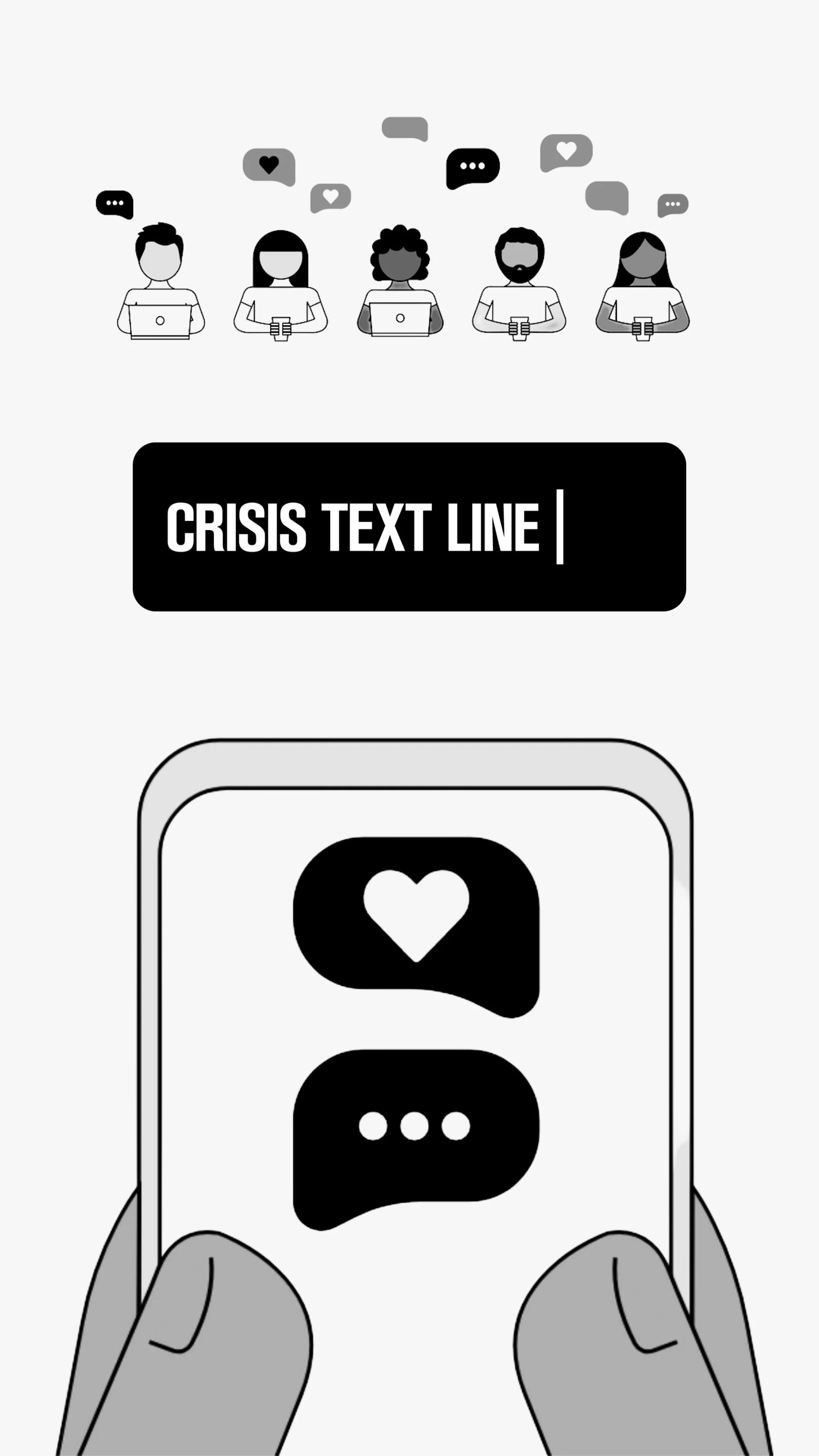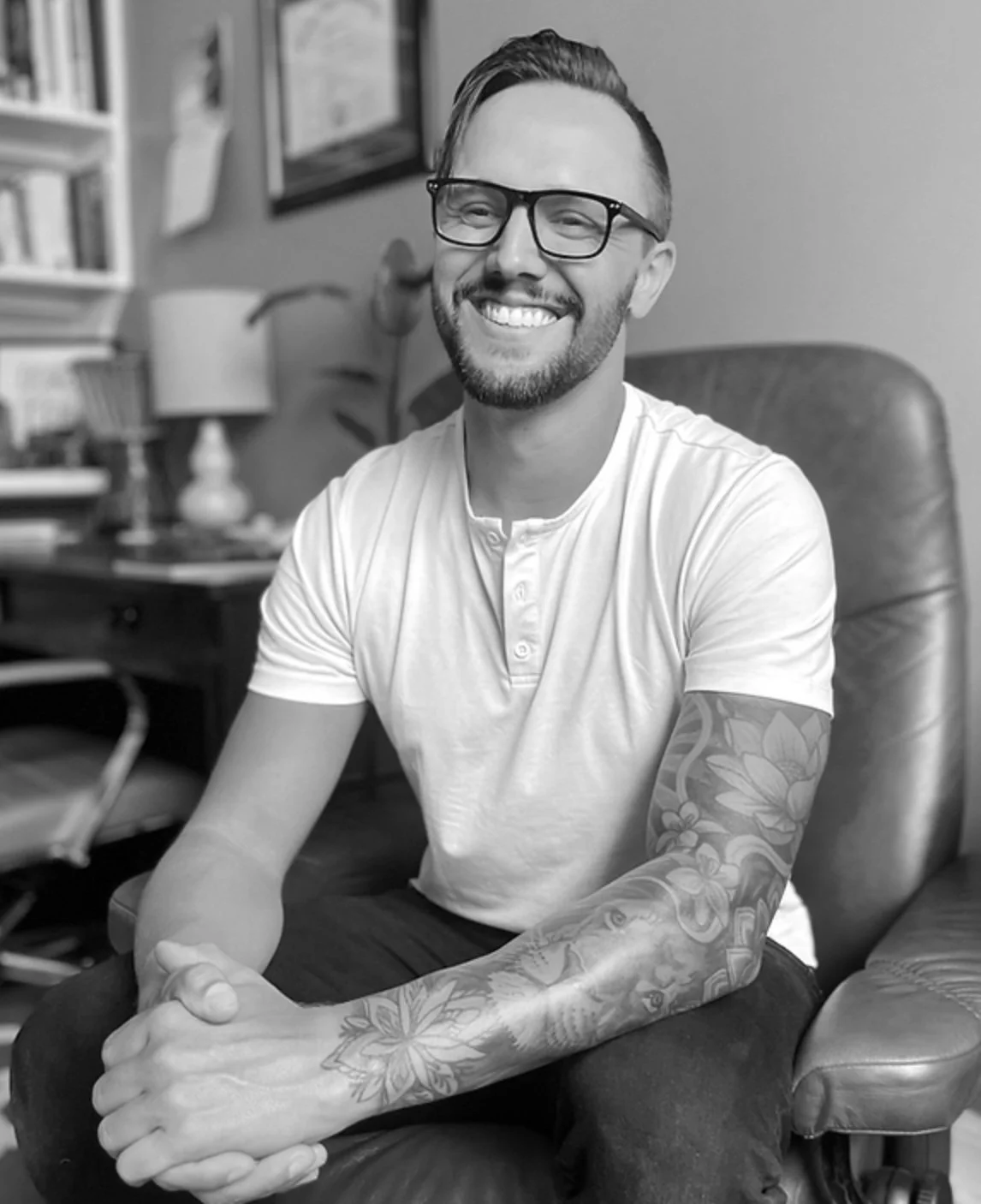100. My Top 10 Mental Health Tips from 100 Episodes + 4 Years of Depression Recovery
listen to this episode:
Tune in and subscribe on your favorite platform: Apple Podcasts | Spotify | Stitcher | Google Play | Radio Public | PocketCasts | Overcast | Breaker | Anchor
Episode 100—can you believe it?!? I asked you guys on Instagram what you wanted to hear to celebrate and the majority said a solo episode. So, here we are—an episode jam-packed with my top 10 insights/takeaways/tips from the last 5 years (severely struggling with depression and anxiety from 13-16, navigating intensive treatment as a teen, recovering, and recording 100+ podcast episodes about mental health). THANK YOU for listening, supporting, and allowing me to share my story it means more to me than you'll ever know :) PS: make sure to enter the 100-episode giveaway on IG!
Mentioned In The Episode…
+ DBT (Dialectical Behavioral Therapy)
+ Ep. 28 with Dr. Blaise Aguirre
SHOP GUEST RECOMMENDATIONS: https://amzn.to/3A69GOC
Episode Sponsors
🛋This week's episode is sponsored by Teen Counseling. Teen Counseling is an online therapy program with over 14,000 licensed therapists in their network offering support with depression, anxiety, relationships, trauma, and more via text, talk, and video counseling. Head to teencounseling.com/shepersisted to find a therapist today!
About She Persisted (formerly Nevertheless, She Persisted)
After a year and a half of intensive treatment for severe depression and anxiety, 18-year-old Sadie recounts her journey by interviewing family members, professionals, and fellow teens to offer self-improvement tips, DBT education, and personal experiences. She Persisted is the reminder that someone else has been there too and your inspiration to live your life worth living.
a note: this is an automated transcription so please ignore any accidental misspellings!
[00:00:00] Sadie: Welcome to she persisted. I'm your host. Sadie sat in a 19 year old from the bay area, studying psychology at the university of pencils. She processed. It is the teen mental health podcast made for teenagers by a team. In each episode, I'll bring you authentic, accessible, and relatable conversations about every aspect of mental wellness you can expect.
[00:00:20] Evidence-based Tina proved resources, coping skills, including lots of DBT insights and education. Each piece of content you consume, she persisted offers you a safe space to feel validated and understood in your struggle while encouraging you to take ownership of your journey and build your life worth living.
[00:00:37] So let's dive in.
[00:00:41] Hello. Hello, and welcome to she persists dead. We are recording episode 100, which is beyond surreal, amazing.
[00:00:49] Can't believe we stuck with it for this long. I started recording episodes when I was at a therapeutic boarding school and had this janky little iPod touch situation. I would try and edit on I'm movie.
[00:00:59] And I had no idea what I was doing, but I knew that I needed to, and I wanted to share my mental health journey because I had done this complete 180 with my mental health. I entered treatment, being severely depressed, severely suicidal, struggling with anxiety. All my relationships had fallen apart.
[00:01:17] I was using things like self harm to cope with the emotions I was feeling and I was really struggling in every aspect of my life. And at the point that I started, she persisted, I had taken ownership of my mental health. I had learned how to cope with emotions as they arose and not let them completely.
[00:01:35] Rule and derail aspects of my life. I'd built healthy relationships. I was able to ask for help when I needed it. And I was no longer depressed. I was no longer anxious. And what everyone promised me would happen, which is that I would feel better, that I would recover, that things would change that had happened, which a year and a half prior I did not even remotely believe was possible. So I knew I wanted to tell my story. I knew that I needed to share that mental health recovery was possible as a teen. And I wanted to share that with teenagers because during my mental health journey, when I was in treatment, there were so many clinicians and adults and doctors and individuals that told me that things would get better, but it's hard to connect with that.
[00:02:15] I was like, yeah, you're an adult. Like you have so much control and autonomy over your life. Like, I am just a teenager. I feel so helpless and alone and like nothing. Will change. And so I wanted to let other teenagers know from a teenager that recovery was possible and very achievable and exactly how I got to that point, because I was so lucky to be surrounded by so many amazing resources.
[00:02:38] I went to the number one mental hospital in the United States McLean hospital, and got to work with the conditions at their DBT program for 14 weeks and be completely immersed in that and learn everything there was to learn and then spending another 14 months maintaining that progress at a therapeutic boarding school.
[00:02:56] So I was very aware that those resources aren't readily accessible and in a lot of cases, aren't to like, not everyone has to leave home for a year and a half to become mentally stable. And so the skills that changed my life that saved my life, I knew that they could justice effectively help other teens struggling at home with their mental health.
[00:03:15] And so I wanted to share that with the podcast. So with that brief recap of the last three years in my treatment journey, I wanted to let you know the plan for today, which is to take you through the top 10 takeaways, insights and tips that I have had from my own mental health journey and from recording over a hundred episodes of she persisted. So before we dive into those, there is a giveaway for 100 episodes. I want to say a huge thank you to everyone who has ever downloaded or supported the podcast or listened or been open to helping me get better at sharing my mental health story.
[00:03:50] So if you want to win some amazing products from mental health conscious companies, including candles and five minute journals. And some amazing merchandise from truth and books from past authors that have been on the podcast, head to the link in the show notes you can under on Instagram, all you have to do is send me a screenshot that you have left a review for the podcast and for bonus entries, you can follow the brands on Instagram and I will be announcing the giveaway winner on June 1st.
[00:04:17] So with that out of the way, my 10 tips takeaways and. Insights gained from 100 episodes. So the first one that I want to dive into is differentiating between being in a damage control, state of mental health versus maintenance phase. I think, I feel like a lot of what I share on the podcast are tips for maintenance phase. So when you are no longer actively in crisis mode, when you are not engaging in coping skills that are actively making your life.
[00:04:46] When you're still dealing with challenges, but your ability to navigate them, doesn't set you further back on your mental health journey, if that makes sense. So when I was really struggling with depression and anxiety, when I would have an overwhelming conflict or an emotion arise, I would have extreme fallout in my relationships. I would engage in coping mechanisms like self harm. I would become suicidal.
[00:05:07] I would go into inpatient or outpatient treatment, which meant that I was less autonomous in my ability to take ownership and cope with my mental health. So I was really in a state of damage control and that when I was focused on improving my mental health, the goal is just kind of stay where I was at and not make things worse when I was coping with challenges that arose.
[00:05:29] So I think it's really important to note where you are within your mental health journey, because if you are trying to maintain progress that you've made. But you're still in damage control area. You don't want to stay stagnant and consistent with suicidal ideation and self harm and unhealthy relationships.
[00:05:46] Like you want to move away from that and get to a point where you're living your life worth living, and you are maintaining that progress.
[00:05:52] And this is really similar to the stages of treatment and dialectical behavioral therapy, where it's statewide and you're just kind of stabilizing behavior. So you are identifying problem behaviors, life-threatening behaviors, and anything that's interfering with therapy. And then stage two, you are reducing trauma related related symptoms and processing through that trauma stage three is living life. You are trusting yourself and you are reaching your individual goals. Maybe that's being more present, feeling less anxious, having healthier relationships and stage four is having a deeper meaning through spiritual existence. And this is where DBT is really tied to mindfulness.
[00:06:30] So my first insight that I want to impart, share, et cetera, is getting really clear on and understanding where you are at in your mental health journey and understand whether you want to maintain where you're at, whether you want to continue to work towards progressing rather than digressing, or if you're just like in damage control, let's get through this let's cope with the now I'm not focused on the building, my life worth living, having these deep, meaningful relationships.
[00:06:59] I'm just coping with the urge I'm experiencing in the moment. And the reason it's so important to get clear on those. Because the skills you're using are different. The people you're surrounding yourself with are different. The resources that will be helpful are different. And your efforts towards your mental health journey recovery, et cetera, will be a lot more effective if they are properly placed.
[00:07:19] So that's takeaway one is that there are very different stages within a mental health journey. The way that. Approach mental health will be different based on this, your attitude towards mental health, what you won't be open to talking about or willing to talk about the conversations that you'll be involved in.
[00:07:37] I even think about like the content that I was consuming, the idea of listening to a podcast, talking about mental health or recovery or depression was really farfetched and not something that I would have gravitated towards because my ability to think beyond the immediate threat. Of not being able to cope with an emotion or an urge that was arising was beyond my scope of functioning.
[00:08:01] So that is takeaway number one, insight. Number two is that if you are not progressing with your mental health, you are digressing, and this is especially true for individuals who have chronically struggled with their mental health.
[00:08:14] If you have a history of maladaptive coping mechanisms on healthy belief systems, toxic relationships, and that pattern has been built over time. Your default that you will revert to, if you're not being intentional, is those unhealthy patterns, relationships, beliefs. So, especially at the beginning, as you begin investing in your mental health,
[00:08:35] It is crucial to be consistently intentional because when you do go on autopilot, it's not going to lead you in the positive upwards direction. You weren't going to go back to what has been safe and comfortable and allowed you to survive up until this point. When this idea was brought up to me, I was in a therapy session at the therapeutic boarding school that I attended. And I was really in the stagnant point of my treatment journey. I had made all those incredible progress with reducing my suicidal ideation.
[00:09:05] I was no longer waking up depressed. I had started to have a relationship with my family. I was coping more effectively, but I had these really negative belief systems. I didn't have very healthy, loving,
[00:09:17] fulfilling relationships at that point.
[00:09:19] And so while I was not actively making my life worse, as I was coping with things I wasn't. Living my life worth living. And it was a really uncomfortable limbo to be in. And so when this idea was brought up to me that if you're not progressing, you're digressing, I didn't really like that because I knew that I wasn't actively progressing.
[00:09:37] So as I will touch on with one of my later insights, nothing is permanent. Things are constantly shifting, changing. No emotion will last forever and no urge will last forever. And no relationship will be in a consistent point for eternity. You get the point. This means that we are never doing.
[00:09:55] At a constant point with our mental health, we are either improving. We are getting better with our ability to cope, to improve our inner monologues, to have healthy relationships, or we are going in the opposite direction. And we're talking down to ourselves, we're engaging relationships that don't allow us to feel validated and seen and supported, or we are coping and effectively, or we are avoiding emotions, which make them come up as more overwhelming and intense.
[00:10:20] So the example that I would like to share it within my own life is the podcast because of she persisted. I am having these incredibly profound and meaningful discussions relating to mental health on an almost weekly basis. It's kind of like therapy, but I am constantly learning new things about mental health and wellness and re understanding what my life worth living looks like. It's allowed me to be constantly learning and growing rather than getting complacent and reverting to degression within my mental health. And this is something that you can implement in your life to be critical about the content you're consuming, what podcasts you're listening to, what TV shows you're watching what books you're reading, what classes you're taking, which relationships you were involved in.
[00:11:07] And having these external sources of progression allow you to not constantly be like, what am I doing for our mental health right now? Is this an effective coping mechanism and take some of that pressure off because you are building a life that allows you to be set up for success and allows you to continue to grow and improve whether it happened to be an active participant 130% of the time.
[00:11:31] So that is insight number two. And it's important to remember because happiness is the journey. It's not a destination. And. No one's mental health journey is ever, ever over. My mental health journey is never over. It's always continuing to evolve and grow and improve and change. And I attribute that to the idea that if we're not progressing you, we are digressing.
[00:11:53] So one step that you can take is to make the intentional choice to progress today rather than digress and engage in activities, relationships, thoughts, behaviors that allow you to improve rather than digress.
[00:12:07] Insight number three is to get good at coping before you need to be good at coping. When I got into dialectical behavioral therapy, which are the skills I share in almost every podcast episode is the skills that I lean on to cope with challenges that arise in my life. These skills in particular, relate to interpersonal effectiveness, emotion, regulation, mindfulness, and distress tolerance.
[00:12:29] Those skills were things that I learned after I had completely departed from my ability to function effectively. Like I mentioned, I had unhealthy relationships. There was a ton of conflict in my relationships. I was engaging in patterns like self harming on healthy eating and healthy exercise. I was suicidal.
[00:12:46] I had completely terrible internal monologue. Self-esteem beliefs about myself, et cetera. So when I learned these skills, I desperately needed them to survive and eventually thrive, but I learned them when I needed the skills. And if I could go back to middle school safety before she started struggling, I wish I would have learned how to cope with sadness versus anger versus shame versus guilt.
[00:13:13] I wish I would've learned how to ride the wave of an urge and not engage in it. I wish I would've learned. The top 10 ways to distract myself that were most effective after having an argument that was really overwhelming. I wish I would have learned how to advocate for my objective versus improve a relationship versus stand up for myself.
[00:13:33] And these were all things that I learned in DBT after I was severely struggling. My counsel to you. My unsolicited advice is to teach yourself how to cope with your mental health before it gets bad, because we all have low moments. We all struggle with things, whether that's stress, depression, anxiety, anger, loneliness, et cetera.
[00:13:54] If you know how to deal with those emotions and you have practiced those coping skills, when you are. Emotionally vulnerable when you are unable to logic through things, when you don't have a plan in place of, this is exactly what I'm going to do to get through this moment, you can pull from those skills and you know that they're going to work because you've used them before.
[00:14:14] So some ways to do this, if you struggle with like minor social anxiety, like the idea of being in a new environment and going up to people and starting a conversation, you're like that doesn't sound like the most appealing thing, but you aren't at the point where you're like house written because you are so scared of rejection using.
[00:14:33] Social anxiety that is coming up on a smaller scale to work through. Anxiety will help you if later on, you do develop severe anxiety. So what you're going to do is you're going to give yourself a little exposure hierarchy, and you're going to start with texting a friend without them texting you first.
[00:14:50] And then you're going to start with calling a family member without them calling you first. And then maybe you're going to go and order coffee Or ask for help with the bank. And you're going to engage with people without them initiating the interaction. And then you are going to go up to someone at a coffee shop and be like, do you have a pencil, something like that.
[00:15:06] And then you're going to put yourself in a situation with people that you've never met before and go up and say hi. So you are slowly working yourself up to the thing that you are scared of. And. Coping with that anxiety, as it arises, you are handling it like a champ. You are using your coping skills.
[00:15:22] You are doing deep breathing. You are telling yourself that it's going to be okay, that this too shall pass. You are allowing yourself to go outside and take a breath if you need it before reentering the situation. And because you have practice all of these skills, there are tried and true method. You know how to do exposure therapy to work up to this fear, if you experience anxiety next year, about a presentation or about, I don't know, breaking up with someone Or rejection with college admissions, you know how to handle those emotions. You've done it before. So when you need them, they're already in your toolbox effective, tried and true practiced and ready to be utilized. Another thing that I want to add here about getting good at handling your mental health before your mental health needs you to be able to handle it. If that makes sense is to practice having a support system and asking for help. So part of TBT is something called phone coaching, where if you need help navigating a situation and using your skills, and you're not totally sure how to use your skills effectively, you can call your therapist and they will walk you through it.
[00:16:26] So maybe you're having a panic attack. Call your therapist number. Okay. Let's do an ice dive. Let's do deep breathing. Let's stay in five things. We can see, hear, smell, touch, taste, et cetera. And it's like a second person there to coach you through the situation. When you start phone coaching with a new therapist, what they're going to have you do most of the time is call them once or twice within the first week when you're not struggling, they're going to say, Hey, call me twice this week and tell me something good that's happened, or call me twice just to say hi.
[00:16:57] And they have you practice that because when you are struggling, say having a panic attack, There's going to be some emotional resistance most of the time to ask for help. And if you've never called them before, there's also the anxiety about picking up the phone and what's going to happen. What are they going to say?
[00:17:14] How am I going to ask for the help that I needed in this situation? So you practice calling beforehand, you practice this conversation. When you do need help in a crisis situation, that's one less barrier to getting the resources that you need. So a non phone coaching example would be having a first couple of appointments with a therapist and meeting with them once a month to maintain your mental health.
[00:17:36] And when something does get bad, you have that relationship established. The trust is there. The dynamic is there and you feel comfortable asking for help. Similarly. If you are feeling a low level of stress, talk to your friends about it, talk to your family about it. And then when you're really sad about a breakup, you feel comfortable being vulnerable with your parents, with your family members, with your friends.
[00:17:57] Another good example is to practice calling a helpline, a warm line, a suicide hotline when you were having a lower level of urge so that when you are really struggling like a nine out of 10 urge, there's not that emotional barrier to asking for help when you do need it, because you know what to expect.
[00:18:15] You've navigated the situation before and you know how to cope. So that is one thing that I wish. I would have done before I started struggling, which was learning these coping skills and getting good at them. And it's something that I wish was more regulated, regular commonplace in our educational system, which is learning how to cope with mental health challenges, ask for help cope with emotions because we all need to do it.
[00:18:41] And a lot of the times we just end up teaching ourselves, which can be really problematic. If you teach yourself ineffective coping skills. So that is tip number three, tip number four is to create a baseline that sets you up for success when you are on autopilot mode. So I touched on this a couple of minutes ago, the idea of having relationships in place that encourage you to grow and improve. And I want to expand on this idea of having a life that kind of pushes you in the direction of progression rather than regression.
[00:19:12] So for me, the way that I've structured my life and college and at home post-treatment is having relationships that allow me to feel seen and heard and validated and supported when I need it. I try and structure my days with balanced meals, making sure I'm eating three times a day and I'm having snacks when I need them.
[00:19:31] I am trying to get movement in every day and get outside. At some point every day. I have little things throughout my day that bring me a lot of joy. So whether that's. Cup of coffee in the morning reading at some point like before bed, seeing friends following creators on Instagram and TechTalk that make me laugh and smile at home, seeing my dogs.
[00:19:52] So little moments of joy that are incorporated into my routine and daily habits that are good for my mental health. So when I'm having a really busy week, when there's a lot on my plate, there's all of these things that are adding to my emotional persistence, my emotional resilience that allow me to stay mentally stable and effective, even when my environment is a little bit more stressful.
[00:20:16] So to kind of give you an example, Of the opposite. When I was struggling with depression and anxiety, my daily routine would be not really getting out of bed. I wasn't really engaging in any therapeutic relationship where I was getting support. Like I shut down in sessions. I wouldn't be transparent about what I was struggling with.
[00:20:37] I wouldn't ask for help. I wasn't learning new coping skills. At school, I really isolated myself. I wasn't really learning anything. And if I was learning something, I was on the other end of the extreme and kind of over-investing to distract myself from emotions that came up.
[00:20:54] I wasn't exercising. My sleep was terrible. I wasn't eating balanced. So all of these things were making my mental health worse. And so my baseline just kind of. Brought down my level of functioning without any external stress. And then when I did have external stress, whether that was conflict or bad news or a day where I was feeling more depressed, the baseline didn't help at all.
[00:21:19] It made things a lot worse and there weren't coping skills built into my routine that allowed me to weather the storm and cope through the emotion. It just made everything worse. So tip number four, have a baseline routine life that is structured to help your emotional resilience to help keep your mental health stable and on track so that when you go into autopilot mode, you're not making things worse for yourself and you are continuing to cope without even realizing it.
[00:21:47] This week's episode is brought to you by teen counseling. If you are not familiar with teen counseling, it is better helps branch of therapy. Specifically for teenagers. They have 14,000 licensed counselors within their network. And what you do is you go to teen counseling.com says she persisted. You fill out a quick form that talks about what you're hoping to work on in therapy.
[00:22:08] So maybe that is stress routine, schedule, relationships, depression, anxiety, et cetera. They then match you with a therapist that specializes in that area. And you start meeting via talk, text and video counts. So many of these insights I was able to have through my journey in therapy. I still go to therapy weekly.
[00:22:25] It's one of the ways that I maintain and continue to progress rather than grass. So it's been a huge part of my treatment journey and something that I still continue to do to maintain and work on my mental health. So if you haven't tried therapy before and are looking for a way to dip your toe in the water without having to deal with a super long waiting list or trying to find a local provider. I highly recommend checking out teen counseling. Again. You can go to teen counseling.com/ to find a therapist today.
[00:22:52] Number five help yourself before helping someone else. If you've ever been in therapy, you've probably heard this example and you're like, you know, when you're on the airplane and they tell parents to put on their oxygen mask before putting on the kid's oxygen mask. The reason they do that is because if the kid gets an oxygen mask on, but then the parent passes out, the kid is left alone.
[00:23:13] Yeah, they can breathe, but they can't get off the plane. They can't navigate the crisis situation. So now there's two people that are helpless and out of control and not able to navigate the situation. But if the parent puts on their oxygen mask first, even if the kid passes out, the parent can then put an oxygen mask on the kid, be aware of.
[00:23:33] Effective in this situation, get them both out of it. And they're both able to navigate the challenge effectively. The same principle goes for mental health. If you are not taking care of your own mental health, if you try and support someone else, you end up with two people that are struggling, emotionally feeling burnt out, feeling overwhelmed, feeling ineffective.
[00:23:55] And I have experienced this to the max when I was really struggling with depression and anxiety. I almost went into like a treatment coordinator mode, which is what I would describe it as. And I kind of took all of these other suicidal teenagers under my wings. We have this group of friends that were all equally strong.
[00:24:14] And would rely on each other intensively for support. And all it did was make everyone more suicidal, more depressed, more overwhelmed, and more hopeless and attempting to help those people navigate their own challenges. When I myself was very much struggling, wasn't effective for either party. I wasn't giving good advice.
[00:24:35] I wasn't giving good support. And it just added another stressor to the table. So whether you are currently in crisis mode, like we talked about at the beginning, or you are in maintenance phase, but someone is coming to you with a mental health challenge. First step. Always going to be making sure that you are okay to support them, making sure that you are setting things up to take care of your own mental health and getting support when you need it.
[00:24:58] Because if you're not, you're not going to be of any service to the other person. And you are hurting your own mental health. Regardless of the situation. That is always my first advice. And it doesn't mean that you don't care about the other person, that you don't want them to get better, that you don't want to see them improve.
[00:25:12] It means that you do want the best for them, and you know that you can support them to your fullest ability. If you are mental health is also on track and you are taking care of yourself. First that's tip number five, tip number six, mental health is health. I don't like, do we need to even elaborate here?
[00:25:32] Like, just like your physical health struggles, your mental health struggles as well.
[00:25:36] If you're not paying attention to it, investing in it, exercising, eating, right, getting outside, et cetera. Your physical health will struggle. Same thing. If you are not having healthy relationships, coping effectively feeling emotions rather than avoiding them. Et cetera. It's it's the same principle there. It's called mental health for a reason. It is part of your health. And to be healthy, you have to invest in all aspects of your health. So if you do notice resistance to this idea and notice like a little emotional pushback, when thinking about prioritizing your mental health, one of my favorite things to do is to reframe it as if it's a physical health problem.
[00:26:16] So, if you had chronic headaches that were interfering with your quality of life, you would go to a neurologist or maybe you would go to your primary care doctor who would then refer you to a neurologist for specialist consult and treatment. Same thing with your mental. If you are a mental health is struggling and interfering with your quality of life.
[00:26:36] You ask for help. You go to a specialist. If you were like, yeah, I think I'm having a brain bleed, but you know what? It's mental toughness, no pain, no gains. Like I can do this. Myself. Emotions are weaknesses. I just got to push through this. Like if that's how we approached our physical health. We, as a society would be a disaster if we had a society left. So if you are ever struggling with prioritizing your mental health, think about it like a physical health problem and treat it with the exact same level of concern, severity, treatment, resources, et cetera.
[00:27:10] So that's six, seven. My seventh insight to share with you is that the most isolating experiences are often the most universal. I feel like every single person. Navigated a mental health challenge, whether that's depression or anxiety or an eating disorder or OCD, whatever it is at some point you've thought no one understands what I'm going through.
[00:27:32] No one gets it. No one has ever felt this way before. And I can almost guarantee that you're wrong because the data shows the majority of adults and in the United States will experience a mental illness at some point in their lifetime. So it's the people that don't experience mental health illnesses, let alone challenges that are in the minority that are the outliers that are abnormal.
[00:27:56] And to add onto that as humans, the way that we've evolved, we all have emotions. And I really love approaching mental health challenges from an emotional perspective. Like when I think about depression, I'm like, how would I cope with extreme overwhelming sadness? When I think about anxiety and like, how would I cope with extreme, overwhelming fear?
[00:28:16] The way that humans work, we've all felt fear. We've all felt sadness. It's what's kept us alive up until this point. So the emotions that are underlying your struggle have likely been felt by every single person around you and they can empathize. They can validate they can sympathize.
[00:28:33] They can relate to what you're going through and support you in navigating those. The last thing that we'll add here is that I think that our presentations of these mental health challenges are really what isolate us and differentiate us more Like I'm going to go out on a limb here and say that no one that is listening to this podcast.
[00:28:49] Went to four inpatient hospitalizations, dead, two rounds of IOP dead, two rounds of outpatient DBT then went to a DBT residential for exactly 14 weeks, then went to a therapeutic boarding school for exactly 14 months before transitioning back to high school and was presenting with suicidality and self harm like that perfect storm of a presentation with how I tried to cope with what I was experiencing is very unique.
[00:29:17] But the belief systems that underlie that, which was feeling like I didn't deserve love feeling like I would never be good enough being like I didn't deserve recovery and happiness and a life worth living. I bet a lot of you have thought that. I bet a lot of you have felt suicidal. I bet a lot of you have felt isolated and alone and hopeless, and it doesn't matter that you can't relate to the 14 weeks and 14 months in treatment because that wouldn't even help me.
[00:29:41] It wouldn't be that validating. What is validating and helpful and supportive is hearing that someone else has also struggled with really dark, scary thoughts, and that they have also felt really overwhelming isolating emotions and they cope through those and they survived it and they were okay. And they can help me also work through those emotions and come out on the other side.
[00:30:04] Okay. And living a life that I love. So reminder that while presentations can be really different, the underlying emotions and belief systems are probably very similar. So if you are ever asking for help, if you're ever trying to support someone else, that's struggling, lean on those emotions, lean on those beliefs, lean on those internal thoughts.
[00:30:24] That's what will be most validating and supportive and allow you to validate, empathize and help the other person.
[00:30:31] Number eight, right in line. Perfect segue. My takeaway for my treatment journey is that the hardest part of the entire experience was asking for help. And I'm sure that sounds a little crazy because that was really towards the beginning of my journey. When I think about when I asked for help and admitted that I wasn't okay. And needed support, I was in eighth grade. I was in my first hospitalization of four. I hadn't gone through intensive treatment. I hadn't learned any DBT skills.
[00:31:00] I hadn't built any healthy relationships or support systems. So it really was the beginning of my mental health journey. And it was even before I hit rock. But from that point onwards, I had people in my corner. I had people looking out for me. I had people checking in on me. I had multiple people keeping tabs on like, okay, how is Sadie doing?
[00:31:19] What's going on in Sadie's head right now? How can we support her? How can we help her? Is this therapy working? Is this treatment working? How can we adjust to be more effective in supporting her? What have I gone through? That would allow me to support her. Like what advice can I give? What do I know from my own personal experience about what might be effective?
[00:31:39] So from that point onwards, I was supported. I had people in my corner and I had a whole wealth of resources to pull from because multiple people were kind of on the problem on the challenge and we're working on it together. So from there it was downhill. I wasn't alone. I was no longer battling this thing by myself.
[00:31:59] I had a whole team. But what asking for help meant was that I was admitting that I wasn't okay. It meant that I was no longer going to be able to avoid my mental health up until that point. If I had a bad day, I could like compartmentalize. I could put it in the back of my mind and I could pretend it wasn't there when you ask for help.
[00:32:18] And when you tell people that you're not okay,
[00:32:20] you can no longer trick yourself into thinking that this is normal and this is okay, and that you don't need support because other people are aware of it and they won't forget that you're struggling. So. I don't know if that makes sense. I might not have said that very effectively, but the point is is that you can no longer pretend that you're not struggling. You can no longer avoid it because people are aware of it and they want to help you. And it's really scary to think that, okay, I've put something out there into the world, into the universe, into my community, and now I can't take it away.
[00:32:55] But, like I said, it's downhill because there are people supporting you, loving you and wanting to see you get better.
[00:33:02] And the other thing to add there that adds to that fear, that opera Henson is how the other person will respond. Whether it's a therapist, a counselor, a parent, a friend, a teacher that you were asking for help and admitting that you're not okay to, they might not respond well. They might say, well, mental health isn't real.
[00:33:20] Or they might say you're okay, just take a deep breath. They might say it's just a rough patch. Tomorrow will be. Which probably isn't what you want to hear. So there's that vulnerability of, how will this person respond? Will they be able to help me, will they want to help me? And if you do get one of those bad responses, the first time I urge you to try again, and you've done a little bit of exposure, it's going to be easier the second time to ask for help.
[00:33:46] And I am so sorry that that person did not respond effectively or well to you asking for help. And there are so many people out there that do want to see you get better. So ask someone else advocate again, and you will find the support you're looking for. Number nine.
[00:34:02] Relapse can be a part of recovery, but it doesn't have to be, it's not always the case. I remember when I was really early on in my treatment journey, when I was no longer suicidal, I was no longer depressed. I was almost scared that I would have this relapse and that I would go back. Point of struggle, that was so painful and so overwhelming and felt so insurmountable while many people do relapse, whether it's with substance use or depression, anxiety, unhealthy coping mechanisms, suicidality, self harm, et cetera.
[00:34:36] Not everyone does after I stopped. Self-harming when I was in outpatient treatment at home, I didn't self harm again, after I stopped feeling suicidal at McLean house. I didn't feel suicidal again. And I'm not saying like one day I was severely suicidal and the next day I never was again, but I started to slowly decrease in the intensity of my thoughts, my urges, my emotions, and they never went back up again.
[00:35:04] So. If you have just pulled yourself out of your rock bottom and you are so, so, so scared that you will go back there and that's something that's out of your control. And you're like, well, that's just part of the process. It's part of recovery. I just got to get through this again. This crazy hard thing that almost broke me.
[00:35:19] You have learned all these skills that will prevent you from getting back to that rock bottom point. You've learned skills that prevent your emotions from becoming so overwhelming that you were referred to those coping mechanisms. You've learned how to ask for help. You've learned how to utilize your resources.
[00:35:35] So you don't have to go back to that point that you are working so hard to move away from my last tip that I'm going to leave you. Is something that I heard on the podcast. If you go back to the interview that I did with Dr. Giri, I'll link it in today's show notes. Blaze was one of my clinicians at three. He was in my initial intake meeting. He saw me at my lowest of lows, my rock bottom, and he saw me move away from that point, no longer being suicidal, no longer being depressed, utilizing my resources when I needed them and learning kind of cope effectively. So it was a really insane, amazing, full circle moment to have him on the podcast. And share his insight, share his wisdom with the sheep assisted community and connect with him in a way that wasn't as this patient that was absolutely falling apart and struggling and at her very wit's end.
[00:36:29] But one thing that he said during that episode was that life isn't permanent and that impermanence will be on your side. And since that point, that has been my number one mantra that I have carried throughout my life when it comes to my. No, what, no matter what you are experiencing the intensity of the urge emotion thought conflict relationship behavior will not stay consistent.
[00:36:54] Nothing in life is permanent. Nothing is constant, nothing is consistent. And so that will be on your side. So if you are feeling the most depressed that you have ever felt in your entire life, you can't stay that way forever. The depression will lift. The urges will lift the wave of the emotion will subside because that's the nature of things.
[00:37:14] And that will again, be on your side so that last takeaway really, again, is more a mantra and insight. Something that I utilize on the daily that I hope you will as well. If it, if it resonates, if not it's impermanent, you'll never hear it again. I wanted to round that episode out. If you are currently struggling with the message that life is impermanent, and that impermanence will be on your side and this too shall pass just like everything does.
[00:37:41] So with that, those are my 10 takeaways from a hundred podcast episodes. Surviving severe depression and anxiety as a teenager, I hope this episode was helpful. I hope some of these tips and takeaways resonated and are things you can implement in your own life and your own mental health journey. So if you enjoyed, please share on social media and tag me at out she persisted podcast, share it with a friend or family member.
[00:38:05] And remember there is a giveaway. So enter on Instagram to win some amazing goodies. Thank you for supporting the podcast. I'll see you next week.
[00:38:13] Thank you so much for listening to this week's episode of she persisted. If you enjoyed, make sure to share with a friend or family member, it really helps out the podcast. And if you haven't already leave a review on apple podcasts or Spotify, you can also make sure to follow along at actually persisted podcast on both Instagram and Tik TOK, and check out all the bonus resources, content and information on my website.
[00:38:34] She persisted podcast.com. Thanks for supporting. Keep persisting and I'll see you next week.
© 2020 She Persisted LLC. This podcast is copyrighted subject matter owned by She Persisted LLC and She Persisted LLC reserves all rights in and to the podcast. Any use without She Persisted LLC’s express prior written consent is prohibited.































